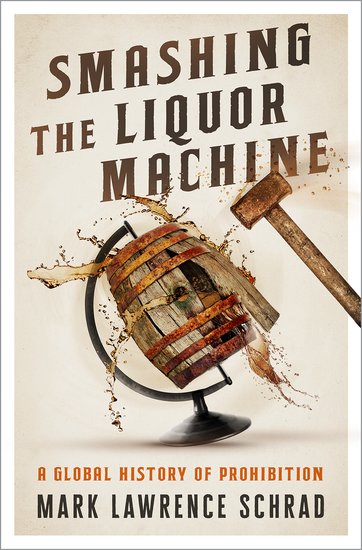As president of the county Woman’s Christian Temperance Union, or WCTU, Nation had already exhausted every nonviolent means of moral suasion against the liquor men: pleading with tavern-keepers, writing letters, signing petitions, organizing temperance marches, and praying in front of illegal saloons. Nothing worked. And since women couldn’t vote, she had no electoral recourse either. Women were legally powerless.
So, on the night of June 6, 1900, Carrie hitched up her buggy and rode the 20 miles south to Kiowa. Early the next morning, she visited the unlicensed, illegal bar of Mr. Dobson, whose own brother was the county sheriff.
“Mr. Dobson, I told you last spring to close this place, you did not do it, now I have come down with another remonstrance,” Carrie said. “Get out of the way, I do not want to strike you, but I am going to break this place up.”
Hard and fast, she hurled bricks and stones at the whiskey bottles, glass mugs and tumblers, and the giant mirror behind the bar. The men—confused and terrified—huddled in the corner. When she ran out of her own projectiles, she grabbed pool balls and billiard cues to smash up the room.
Then she did the same to the saloon across the street.
And then a third.
Carrie was always clear that her attack was not against the booze in those bottles, nor the pitiable addicts getting drunk at 8:30 that Thursday morning, but against the predatory liquor traffic and the government that abetted it. “The smashing in Kansas was intended to strike the head of this nation the hardest blow, for every saloon I smashed in Kansas had a license from the head of this government which made the head of the government more responsible than the dive-keeper,” she wrote. “I broke up three of these dives that day, broke the windows on the outside to prove that the man who rents his house is a partner also with the man who sells.”
The man who sells.
Carrie Nation’s foe was not the drink or the drinker, but “the man who sells.” This is important.
By the time she was done with the third saloon, a sizable crowd had grown in the streets, watching in bewilderment and amusement. The authorities did not know what to do. “I have destroyed three of your places of business,” she declared to the onlookers, “and if I have broken a statute of Kansas, put me in jail; if I am not a lawbreaker your mayor and your councilmen are. You must arrest one of us, for if I am not a criminal, they are.”
